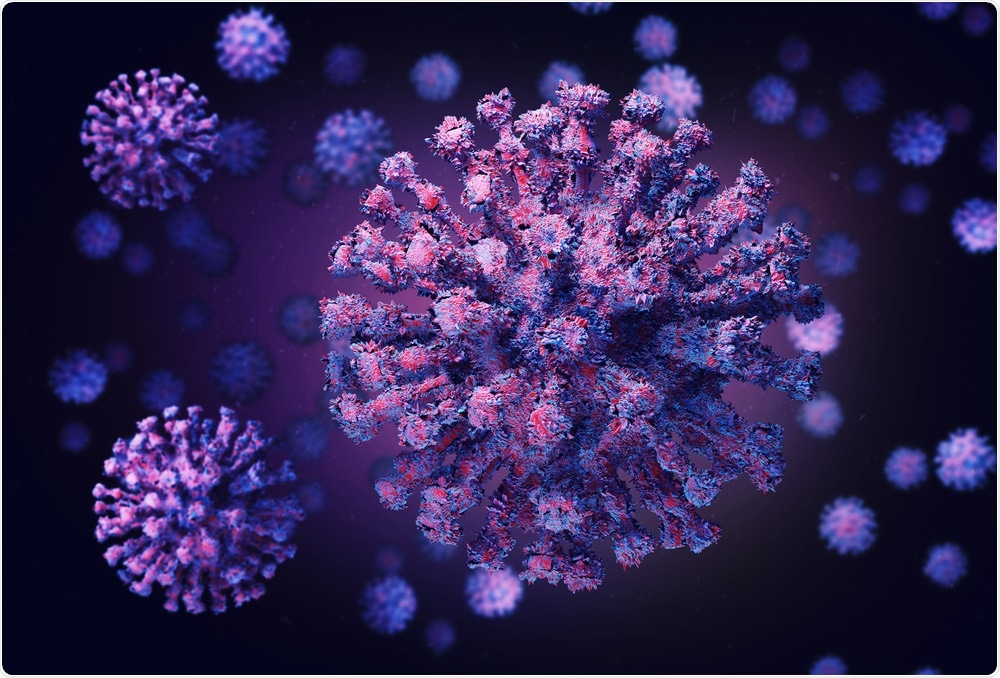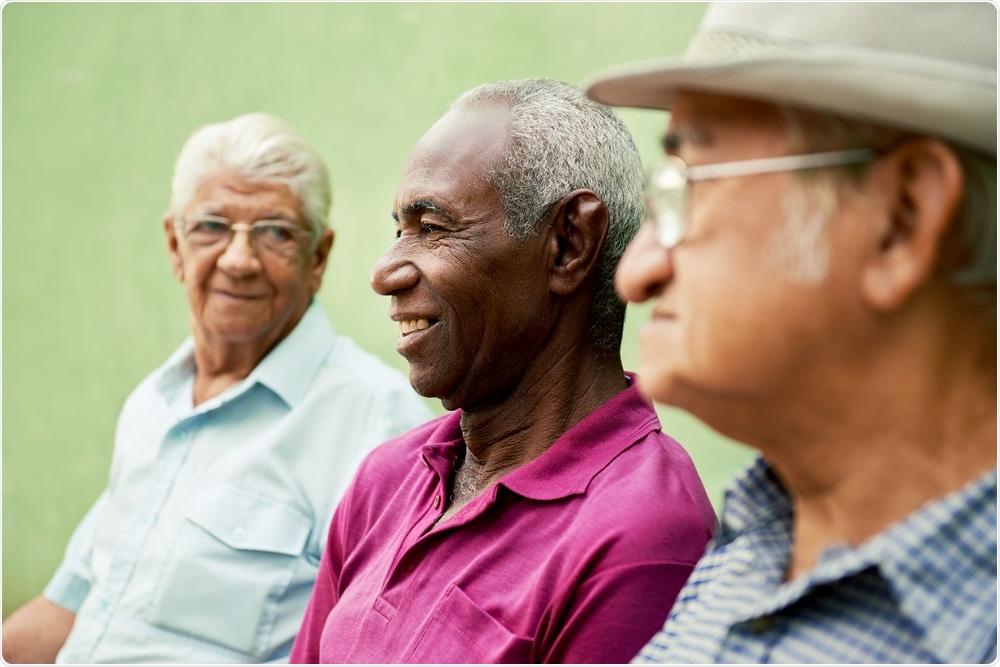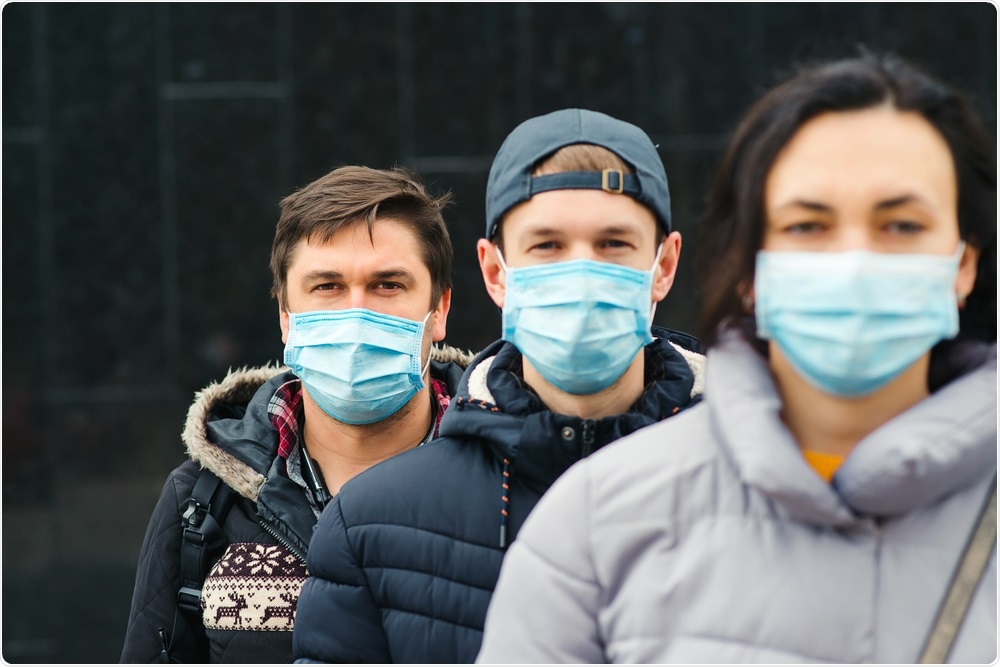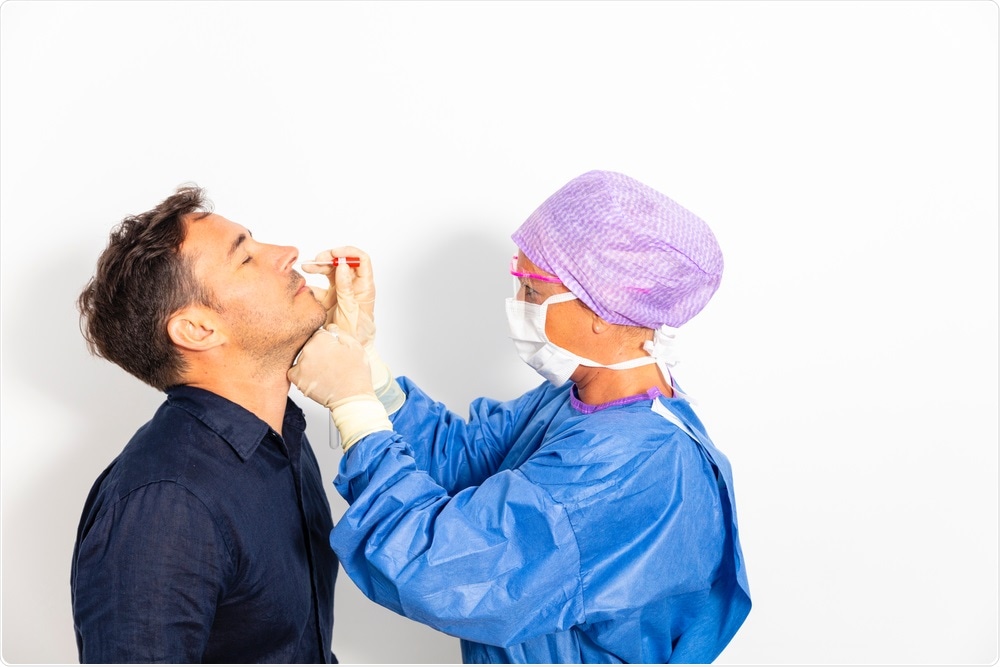Upon the emergence of the virus in China in December 2019, the University of Washington Virology Laboratory began preparing to perform both clinical testing of patient samples as well as sequencing of the virus itself to evaluate the way it spreads in the population and mutates over time.
When the outbreak in Washington state was first discovered in late February, the entire Division of Virology, including my lab, immediately mobilized to direct efforts to studying SARS-CoV-2.
I had previously studied the immune system, so right away I started looking at how COVID-19 affects the host immune response.

Image Credit: iunewind/Shutterstock.com
Up until now, it was unknown why COVID-19 infections tend to be more severe in older adults and males. Why is this?
Much of our understanding of how viruses affect different populations comes from controlled experiments on isolated cells or animals – it is really difficult to make causal conclusions from the observations of the virus “in the wild”.
I think that our data showing that there are differences in the immune response to SARS-CoV-2 in older adults and males is compelling, but the direct causal relationship between immune system differences and poorer outcomes in these groups will need to be confirmed in controlled laboratory experiments. These experiments just take some time.
In your research, you investigated the immune responses to SARS-CoV-2. Can you describe how you carried out this research?
We used a technique called “RNA sequencing”, or RNAseq. When a diagnostic nasopharyngeal (NP) swab is taken, it collects both viral RNA and human RNA. In humans, RNA is transcribed from DNA genes and provides the instructions to a cell to make proteins, including the proteins used by the immune system to respond to and alert neighboring cells to a viral infection.
We isolated RNA from nasopharyngeal swabs and compared the relative levels of each RNA between SARS-CoV-2 infected and uninfected individuals. We found RNAs encoding many genes to be increased or decreased in virus-infected individuals relative to controls. In this way, we were able to get a global picture of how the immune system responds to the virus.
What did you discover?
We found that classical antiviral pathways were activated in response to SARS-CoV-2 infection. However, in people aged 60 and over, the genes that help to recruit immune effector cells – the immune cells that can actually eliminate infected cells – were much less activated than in their younger counterparts. This suggests that older individuals may not be as able to clear the viral infection.
Additionally, males had increased levels of genes that tell the immune system to dial back the antiviral response. We cannot say with certainty that these observations are responsible for the increased morbidity and mortality in elderly and male SARS-CoV-2 patients, but they could certainly be important contributing factors.

Image Credit: Diego Cervo/Shutterstock.com
How does viral load affect the severity of the SARS-CoV-2 infection?
We found that viral load was correlated with the degree to which the antiviral response was turned on – patients with a larger amount of virus also had a larger amount of antiviral immune response genes.
We did not have access to the data on the clinical outcomes of the patients included in our study, but other investigators have demonstrated that larger amounts of the virus are correlated with more severe infection.
How does your research help guide potential treatments for the SARS-CoV-2 infection?
I think our study shows that some of the clinical trials of different types of interferons – the body’s most potent antiviral mediators – might be on the right track. I am looking forward to seeing those results.
Do you believe that with your research, we can further help to understand COVID-19 and potentially save lives?
I think at this stage of the pandemic, any carefully conducted, peer-reviewed research is helpful – there is still so much to understand about this virus and how it affects its human hosts.
I am very hopeful that our study provides important information to other scientists and clinicians working more directly on treatments.
What can older adults and males do to help protect themselves from COVID-19?
The same things the rest of us can – wear a mask, keep plenty of distance during social interactions, and regular handwashing. And although that is difficult, I hope they can take heart in the fact that there is a massive collaborative effort by tens of thousands of scientists across the world to understand this virus and develop treatments.

Image Credit: Volurol/Shutterstock.com
What further research needs to be carried out before we can conclusively state that age and gender have an impact on COVID-19 severity?
I think that at this point, the data from clinical studies of patient outcomes is extremely clear that older age and male sex are important risk factors for more severe COVID-19. Understanding the mechanisms behind these differences in outcomes will require studies in a wide array of animal models, efforts that are already underway.
Additionally, more studies the patient immune response to SARS-CoV-2 infection combined with detailed demographic and clinical outcome data will likely also be an important piece of the puzzle.
Why are swabs from the nasopharynx not as reliable as other anatomic locations?
Swabs from the nasopharynx are fantastic. In many ways, they are still the gold standard for sampling. SARS-CoV-2 can infect the lungs and it is hard to get samples from the lower respiratory tract, so nasopharyngeal swabs may not capture those cases, but there is not necessarily a better alternative.
Saliva has shown some promise though sample-to-sample variability can be quite high. And then nasal swabs generally work well as well.

Image Credit: zstock/Shutterstock.com
What are the next steps in your research into COVID-19 immune responses?
I am looking forward to studying the interplay between SARS-CoV-2 infection, the immune response, and how those factors may influence the development of secondary bacterial infections such as pneumonia, complications that are responsible for a large percentage of SARS-CoV-2-related deaths.
Where can readers find more information?
About Dr. Nicole Lieberman
Nicole Lieberman completed her BSc in biochemistry at the University of Calgary, an MS in structural biology at North Carolina State University, and a Ph.D. in molecular biochemistry at the University of Maryland, Baltimore.
Following her Ph.D., she joined Seattle Children’s Research Institute as a postdoctoral fellow, studying the anti-tumor immune response in pediatric and adult brain tumors, and developed a novel macrophage-based immunotherapy for solid tumors, on which she holds a US patent.
In December 2019, she joined the laboratory of Dr. Alex Greninger at the University of Washington School of Medicine, where she studies the host response to viral infection, as well as genomic determinants of Treponema pallidum subsp. pallidum (syphilis) pathogenesis.